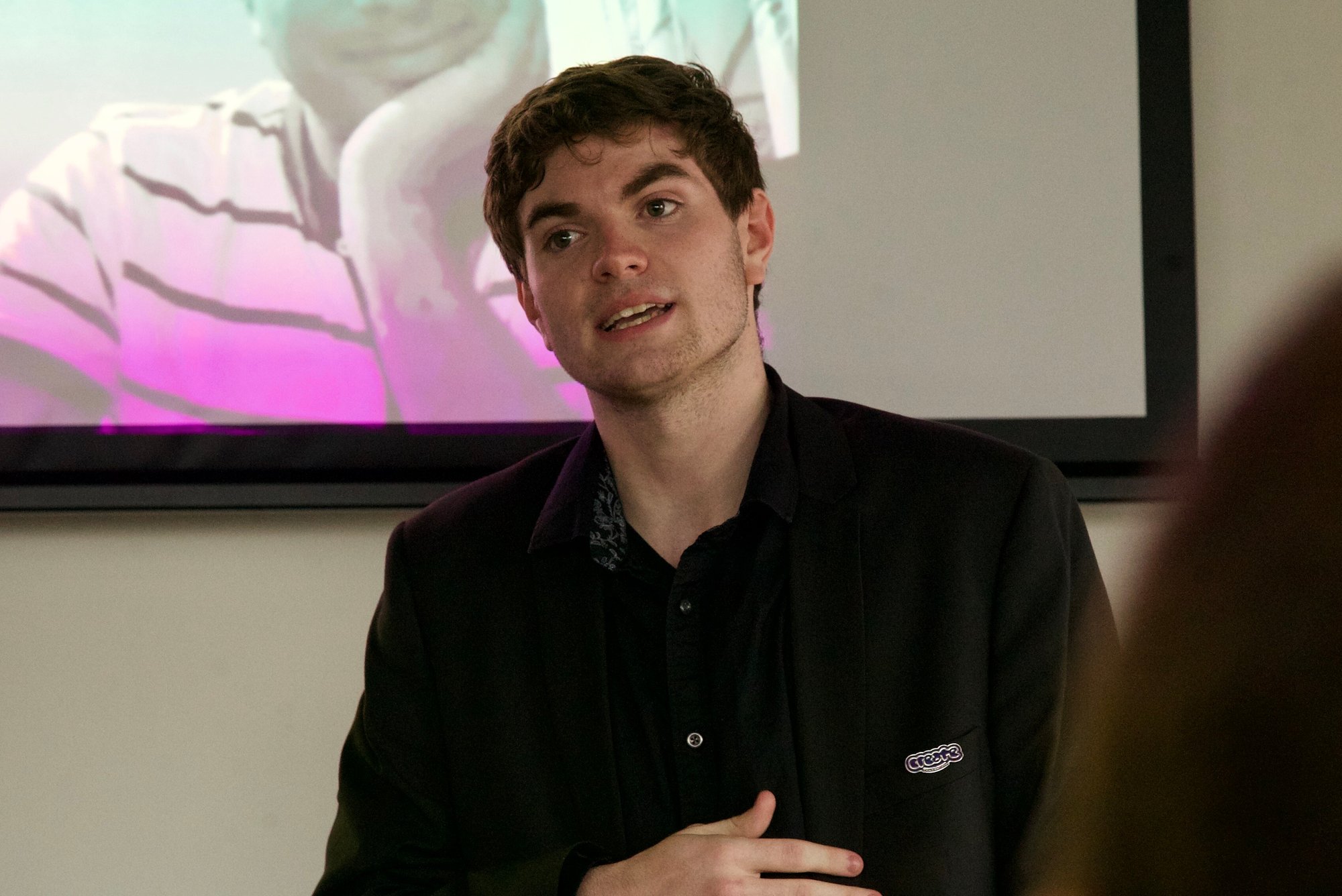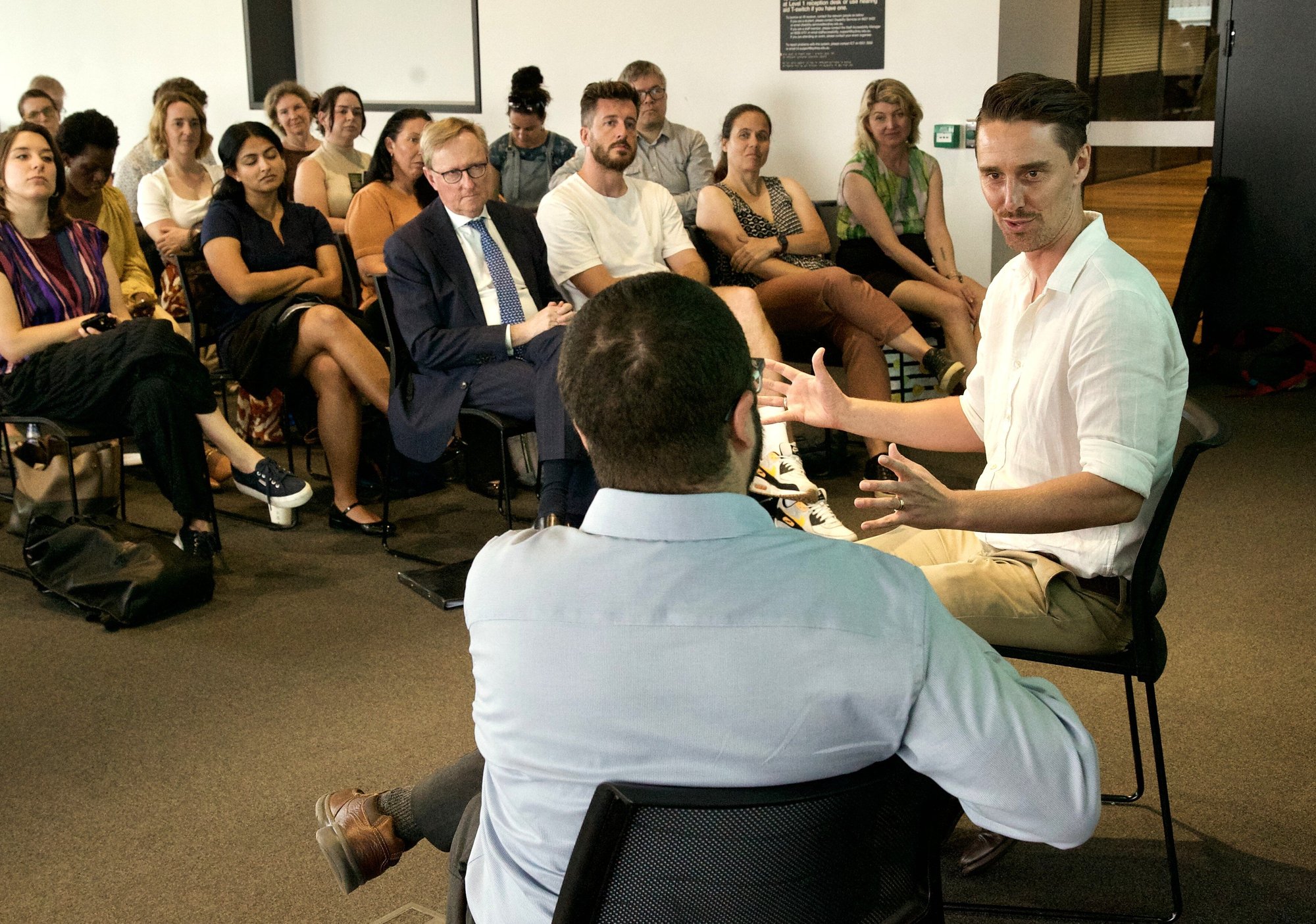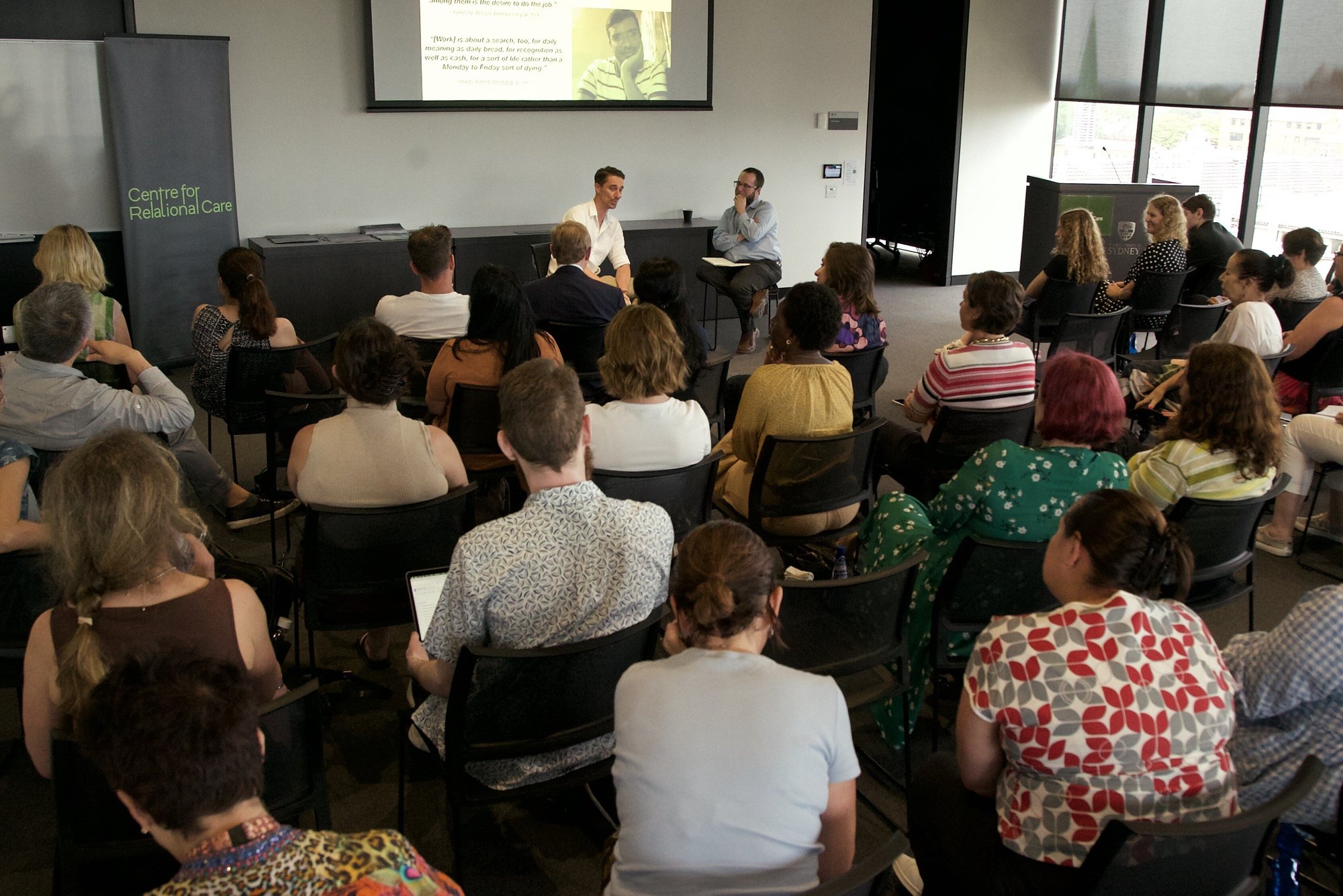The Centre for Relational Care hosted a groundbreaking session with Dr Dan Honig, Associate Professor from Georgetown University, on how care systems can achieve transformative outcomes by shifting from rigid compliance frameworks to meaningful strategies for workforce empowerment.
The discussion, held in December 2024, resonated deeply with the findings of the James Martin Institute for Public Policy’s report, Supporting Children and Families to Flourish, developed in collaboration with the Centre for Relational Care. This report highlights Dr Honig’s work on “mission-driven bureaucrats,” showing how empowering child protection workers to focus on relational practice can boost morale and wellbeing, and lead to better outcomes for everyone involved.
The human impact: Relationships over paperwork
The session included a young person, Lachlan Hobman, sharing his first-hand experience of being in the child protection system, including residential care and also 11 months in an Alternative Care Arrangement – isolated, in various hotels, with a rotating roster of untrained workers. Lachlan superbly described how red tape and borders get in the way of relationships and being able to heal, and how the structure of the system “means kids are viewed as a file and a case number”. Lachlan’s incredibly moving story reinforced the imperative for a new paradigm of care.

Challenging traditional management approaches
Dr Honig's research challenges a fundamental misconception in public service: that employees are simply "good" or "bad". Instead, he argues that most people are "mutable" - their performance and motivation can be significantly influenced by management practices. His landmark study, drawing from the largest database of civil servant surveys (4 million individual observations across five countries), reveals a critical finding: when management becomes more empowering, employee mission motivation increases substantially.
A powerful example comes from the South Africa Revenue Service post-apartheid. Instead of replacing staff, Judy Parfit and her team transformed the agency by helping employees see how they could contribute to a larger mission of building a new South Africa. The result? Nearly all staff remained, reinvigorated by a sense of purpose.
Empowerment in action: Practical strategies
Dr Honig outlined several practical ways to shift systems towards empowerment:
- Establishing clear missions that connect employees to broader organisational goals
- Creating peer review systems that foster accountability
- Centreing accountability on meaningful interactions between bureaucrats and citizens
- Focusing on relationships rather than rigid reporting mechanisms.
These ideas strongly align with Opportunity 1 in the James Martin Institute report, which advocates for a new social compact – a shared commitment to children, families, and their communities in NSW through a co-developed vision and mission oriented towards love, wellbeing, human connection and family flourishing. This shared vision and mission would be embedded in a whole-of-government strategy and reflected within individual agency strategic plans.

Additionally, Dr Honig’s focus on clear missions and relationship-driven accountability aligns with Opportunity 6, which includes proposals for care sector leaders to:
- set key performance indicators centred around supporting a family’s own, self-defined goals for the future
- hold regular professional supervision and reflective practices, where managers create room for creativity, and mistakes can be safely addressed and learned from
- embed a relational approach to enhance caseworker morale and job satisfaction, with caseload optimisation as a critical first step.
More broadly, Dr Honig’s approach echoes the Centre for Relational Care’s vision for a “Child Connection System.” Like us, he champions a shift from risk-focused practices to relationship-centred care. His strategies highlight the importance of moving beyond bureaucratic constraints that often hinder meaningful engagement, reinforcing our commitment to fostering the nurturing and supportive connections children need to truly thrive.
A transformative vision
Dr Honig's research offers a compelling roadmap for systemic change:
- Trust frontline professionals to exercise meaningful judgment
- Create systems that prioritise human connections
- Recognise that mission-motivated employees want to contribute significantly
- Understand that empowerment is not about removing all compliance, but finding the right balance.
As Joseph Roberts, an auditor profiled in Honig's work, poignantly noted: "If I didn't feel like I was accomplishing anything here, and I didn't feel like I was trusted, I probably wouldn't be long for this job. No one would."
Thank you, Dr Honig and Lachlan
The Centre for Relational Care is proud to bring these conversations to the forefront. Events like this remind us that change is possible when research, policy, and practice come together.
We are also grateful for the contributions and support of:
- Aunty Rhonda Dixon-Grovenor, a foster carer and the Centre for Relational Care’s Elder in Residence, for her Welcome to Country and thoughtful commentary. She shared insights on the profound impact of the statutory child protection system on First Nations children, and the need to stop removals that disconnect children from their families, communities, and culture.
- Aunty Calita and Aboriginal Cultural Ambassador Dean Kelly, who joined Aunty Rhonda in greeting Dr Honig and his colleague Vinuri Dissanayake for an on-country cultural welcome when they arrived in Sydney.
- Michael Tidball, Secretary of the NSW Department of Communities and Justice, for his introductory remarks. Mr Tidball reiterated that relationships need to be at the core of the child protection system, guided by evidence, lived experience and expert advice such as Dr Honig’s. Acknowledging the need for a decisive break from past approaches, Mr Tidball called for a paradigm shift in areas like workforce empowerment. He commended the James Martin Institute report, which draws on Dr. Honig’s research, as a "north star" for guiding meaningful reform.
- Amanda Tattersall and Sydney University for generously providing the venue for the event.
And a huge thanks to the diverse and engaged group who joined us for the event and are contributing to the thought leadership around Dr Honig’s work and the JMI report more broadly.

